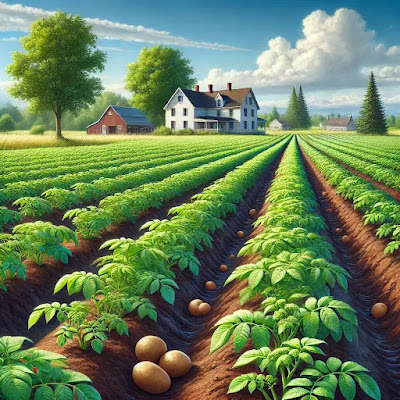Overcoming Challenges in Smart Farming
Smart farming, with its promise of increased efficiency and sustainability, has gained significant attention in recent years. However, it's not without its share of challenges. In this article, we'll explore these challenges and discuss how farmers and technology are coming together to overcome them.
1. Introduction
Smart farming, also known as precision agriculture, involves the use of technology to optimize various aspects of farming, from planting and harvesting to livestock management. While it holds immense potential, it faces several hurdles that need to be addressed for it to reach its full potential.
2. Climate Change and Agriculture
Climate change brings unpredictable weather patterns and extreme conditions that affect crop yields. Smart farming technologies, such as weather forecasting and crop monitoring, are crucial in adapting to these changes.
3. Limited Resources and Growing Demand
As the global population continues to grow, there is increased pressure on agriculture to produce more with limited resources like water and arable land. Smart farming practices, like precision irrigation and vertical farming, help maximize resource use.
4. Data Overload
With the proliferation of sensors and data collection devices on farms, managing and interpreting the vast amount of data generated can be overwhelming. Farmers need user-friendly interfaces and data analytics tools to make informed decisions.
5. High Initial Costs
Implementing smart farming solutions can be expensive. However, over time, the savings from improved efficiency and reduced resource wastage often outweigh the initial investment.
6. Resistance to Change
Farmers may be hesitant to adopt new technologies due to a lack of familiarity or fear of disruption to their traditional practices. Education and support are essential in overcoming this resistance.
7. Lack of Digital Literacy
Not all farmers are tech-savvy. Training programs and easy-to-use interfaces can bridge the digital literacy gap and enable more farmers to benefit from smart farming.
8. Pest and Disease Management
Pests and diseases can devastate crops. Smart farming tools, such as automated pest detection and precision spraying, aid in early intervention and reduce chemical use.
9. Privacy and Data Security
The collection of farm data raises concerns about privacy and data security. Robust data protection measures and clear policies are vital to address these concerns.
10. Conclusion
Smart farming is transforming agriculture, but it faces challenges that require innovative solutions. By addressing these hurdles, we can unlock the full potential of smart farming and ensure a more sustainable future for agriculture.
FAQs
1. How can smart farming help combat the effects of climate change?
Smart farming technologies, like weather forecasting and crop monitoring, enable farmers to adapt to changing weather patterns and optimize their farming practices accordingly.
2. Is smart farming only for large-scale farms?
No, smart farming can be tailored to suit farms of all sizes, from small family-owned operations to large commercial enterprises.
3. How can farmers ensure the privacy of their data in smart farming?
Farmers should choose sensors and data management systems that prioritize data security. Additionally, implementing robust data protection measures is crucial.
4. What role does government policy play in promoting smart farming?
Government policies can incentivize the adoption of smart farming technologies through subsidies, research funding, and regulatory support.
5. Are there any success stories of farms overcoming challenges through smart farming?
Yes, many farms have reported increased yields, reduced resource usage, and improved sustainability through the adoption of smart farming practices.
Conclusion
In conclusion, smart farming holds the promise of revolutionizing agriculture, but it must overcome several challenges along the way.
By addressing issues like climate change, resource scarcity, and data management, the agriculture industry can harness the full potential of smart farming to ensure food security and sustainability for generations to come.

.png)

Great article! Smart farming is paving the way for a more sustainable and efficient future in agriculture. Farmers and technology are working hand-in-hand to tackle challenges like climate change, resource limitations, and data overload. It's impressive how smart farming adapts to unpredictable weather, maximizes resource use, and addresses privacy and data security concerns. Despite initial costs and resistance to change, success stories showcase the tangible benefits, with some farms even optimizing their practices in pole barns through smart technology. With innovation, education, and government support, smart farming's potential to ensure food security and sustainability is truly exciting. Cheers to a greener and smarter agricultural landscape!
ReplyDelete